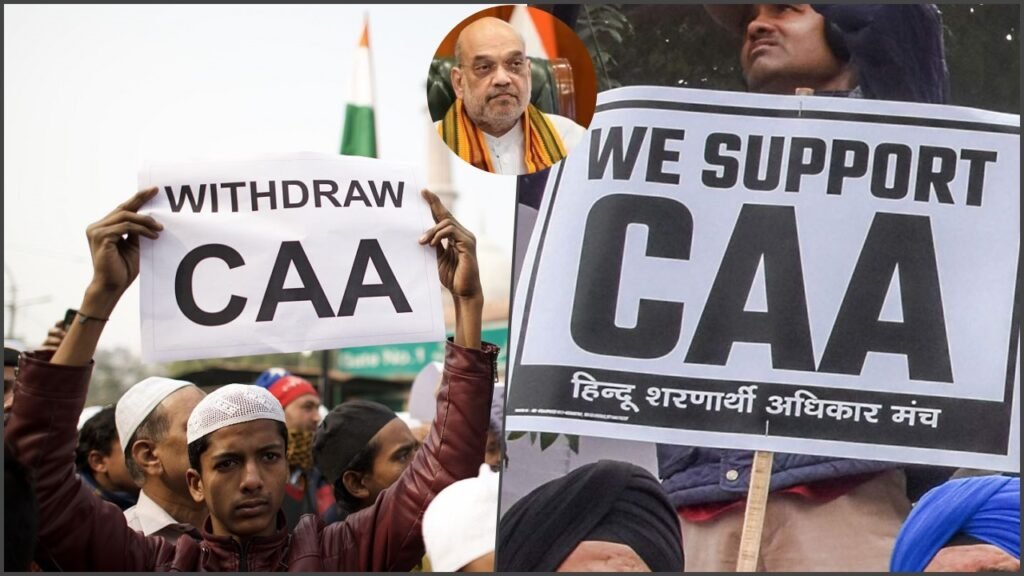
New Delhi: The Citizenship Amendment Act (CAA) is a law that was passed by the Parliament of India on December 11, 2019. It aims to grant Indian citizenship to six religious minorities (Hindus, Christians, Sikhs, Jains, Buddhists, and Hindus, Christians, Sikhs, Jains, Buddhists,) who fled from Afghanistan, Pakistan, and Bangladesh due to religious persecution and arrived in India on or before December 31, 2014.
Why is it controversial?
The CAA has been opposed by many groups and individuals who claim that it violates the secular and democratic principles of the Indian Constitution. They argue that the CAA discriminates against Muslims and other minorities who are not included in the law. They also fear that the CAA, along with the proposed National Register of Citizens (NRC), could be used to disenfranchise and harass millions of Indians who do not have adequate documents to prove their citizenship.
What is the status of the CAA?
The CAA has not been implemented yet, as the rules and regulations for its execution have not been notified by the Central Government. According to sources from the Home Ministry, the government is planning to notify the rules and regulations of the CAA this month, i.e. before January 26, 2024. This would be the first major step taken by the government in the new year to implement the CAA.
What are the benefits of the CAA?
The supporters of the CAA claim that it is a humanitarian gesture that will provide relief and hope to thousands of persecuted minorities who have been living in India for years without any legal rights or protection. They cite the example of Hindu refugees from Bangladesh who have been residing in camps in West Bengal and Assam, and Hindu-Sikh refugees from Pakistan who have settled in various parts of India. According to official data, till 2014, around 32,000 people from Pakistan and Afghanistan had come to India seeking citizenship.
The Home Minister Amit Shah has reiterated that the CAA is the law of the country and no one can stop it from coming into effect. He has also assured that the CAA will not affect the rights of any Indian citizen, regardless of their religion or caste. He has said that the CAA is only meant to help the oppressed minorities from the neighboring countries who have nowhere else to go.

What are the requirements for the CAA?
The CAA does not automatically grant citizenship to anyone. It only makes the eligible persons eligible to apply for citizenship. The applicants will have to fulfill the following criteria:
- They must belong to one of the six religious minorities (Hindus, Christians, Sikhs, Jains, Buddhists and Parsis) from Afghanistan, Pakistan or Bangladesh.
- They must have entered India on or before December 31, 2014.
- They must have lived in India for at least six years.
- They must have faced religious persecution in their country of origin.
- They must speak one of the languages that are included in the Eighth Schedule of the Constitution of India.
- They must meet the requirements of the Third Schedule of the Citizenship Act, 1955, which include taking an oath of allegiance to the Constitution of India and renouncing any other citizenship.


















































